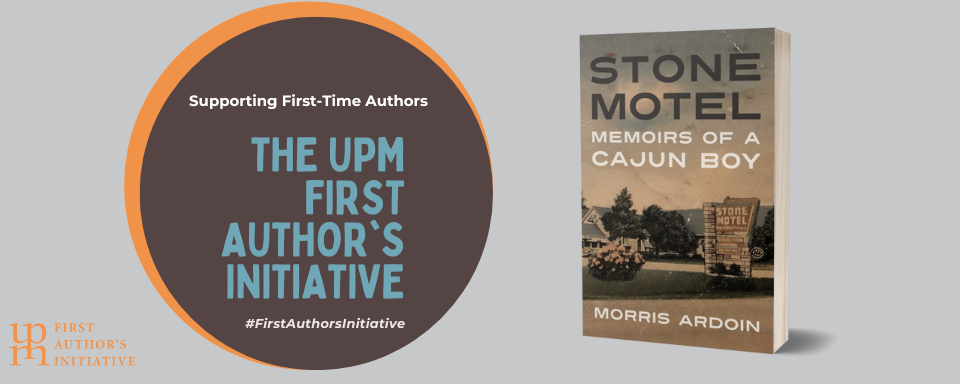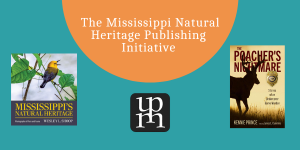
Bashert: For When Making a Book is Your Destiny
Learn more about UPM's First Author's Initiative.
I wrote Stone Motel: Memoirs of a Cajun Boy at night, on weekends, and staycations over five years. Telling my story in a way that would make it publish-worthy didn’t actually cross my mind until very late in the book-making process (I use the term ‘making’ here intentionally – getting a book published involves so much more work than just writing).
Looking back, I now know that it was a luxury to focus on something that did not have a deadline attached to it, a discernable genre, or even a specific audience in mind. On those multiple staycations, where I rose early each morning to start writing and kept at it until late in the night for the week or 10 days, it was bliss to just be able to write. Write for me, as opposed to for my “pay-the-bills” job, which involves a lot of writing and editing. I think that’s one of the reasons why the words flowed so readily for my first book. I was too naïve to worry about what was to happen after I’d finished. I wrote with abandon. And then, Voila! I “suddenly” had a manuscript after all those years.
Then came the hard part: the part that comes after the shaping and sometimes retrofitting chapters or sections of the narrative to make the book, well, a book, and not just some random ramblings. Random ramblings are fun for me, but they don’t necessarily translate into a publishable book. The really hard part is finding a home for your finished manuscript once you’ve done all that writing and editing. That part of the process can involve as many or more years as the writing did, and the determination and ability to keep plugging at getting your work in front of someone who can move it forward.
Unfortunately for me, the discipline to do something that is not in my comfort zone (selling my work to others) and adhering to the powerful dictates of the publishing business don’t come easy to me. To be candid, had I known how many contortions I would have to go through to get the manuscript to the finish line – that is, after I had the temerity to believe it could be published – I might not have even tried. That said, after learning a lot from fellow writers over these years, I can now say with conviction that virtually every author goes through something like this, that is, the working and reworking of a manuscript, followed by the often daunting process of finding an agent and then publisher.
Now that I know all this, I must say that my approach to making a new book is very different. I started my current manuscript by making a list of important steps, a cheat sheet if you will. So, first, I wrote the query letter I will need to pitch the manuscript to agents and/or publishers. Writing the query letter forced me to think about the genre and the audience before anything else. The query letter requires that you think about some comparable books in the genre, and finally, figure out your story’s point of view and arc – ideally all before you start to write.
As I mentioned already, when I wrote Stone Motel, I did not have all insider information. I spent about a year after writing the manuscript learning about the book-editing and commercial publishing industries, how agent-hunting works (that query letter is all-important!), and even doing my share of self-publishing research, should I have decided to give up trying for a traditional publisher and go rogue. I believed in Stone Motel but did not know how discouraging it would be to have to spend so much time pitching it.
But then, kinda randomly (remember – I love random), I came across the University Press of Mississippi (UPM). A college friend who had taught in the Mississippi state university system suggested I send a query to the people at UPM, which has published an impressive collection of books focused on Louisiana. Until then, I had not considered that an academic press might want my book. In short, UPM said yes to my pitch and proposal, and the book was published in April of 2020.
There’s a Yiddish term, bashert, for when two entities click, when the stars align, when there’s a perfect fit, when it is destiny that something happen. After all that I’d been through looking for a home for my book, when I came upon UPM and they said they’d publish Stone Motel, I took it as bashert. (A paperback edition is scheduled to be released in the fall of this year, and for that I am truly grateful to the kind people at UPM for believing enough in the viability of my book to do a second printing.)
I know I am one of the lucky few writers who’ve managed to get a book published – yes, there are thousands of books on the market at any given time, but there are also thousands and thousands of writers trying to crack through the system.
My advice to first-time authors? Don’t let all that I’ve just written here scare you away from writing your first book. First, set out to write a book that you’d want to read. Then figure out up front who you think your audience would be and settle on your genre (where your book would actually sit in a bookstore). Doing those things up front in the process should help guide you as you write your manuscript. The rest of the book-making process won’t be as fun as the writing part should be for you if you love writing like I do. But I believe that, if your writing is solid and your story strong, you, too, will be blessed with bashert: Getting a book published is your destiny.
Now, go make that book!


Comments